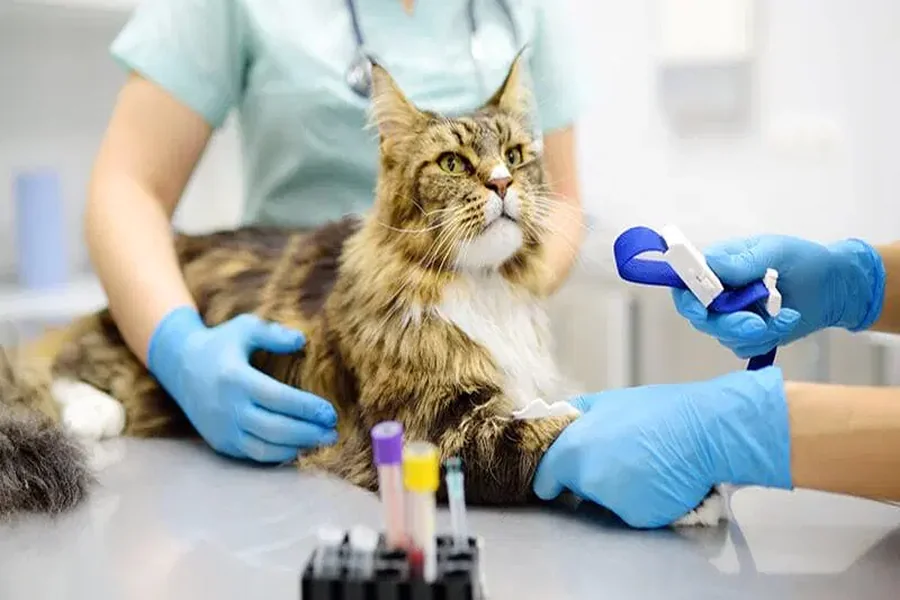Managing chronic conditions for pets involves key players, with veterinary hospitals playing a central role. You, as a pet owner, understand that chronic conditions require ongoing attention. When you work with a veterinarian in South Kitchener, you gain access to crucial resources. Veterinary hospitals provide consistent care, which helps you manage your pet’s chronic conditions efficiently. These hospitals offer treatments designed to maintain your pet’s quality of life. They focus on prevention and routine care, which catch potential issues before they worsen. With a team of experts available, these hospitals address a wide range of conditions. This support is essential. You can trust that a veterinary hospital will help you make informed decisions. They offer guidance, treatments, and preventive care. Your partnership with a veterinary hospital can improve your pet’s health and well-being, ensuring they live as comfortably as possible. The journey of managing chronic conditions becomes more manageable with their support.
Understanding Chronic Conditions
Chronic conditions in pets, like diabetes, arthritis, or kidney disease, demand long-term management. Early detection and continuous care keep these conditions from escalating. You play a crucial role by observing changes in your pet’s behavior. Report these promptly to your veterinarian. With early intervention, you can halt progression. Ongoing treatment plans devised by veterinary hospitals provide relief and stability for your pet.
Routine Care and Monitoring
Regular check-ups are vital. They allow for continuous monitoring and adjustments to your pet’s treatment plan. Scheduled visits to veterinary hospitals ensure your pet’s condition is controlled. With routine blood tests and physical exams, veterinarians track your pet’s health effectively.
| Condition | Routine Care Procedure | Benefits |
|---|---|---|
| Diabetes | Blood glucose monitoring | Prevents complications |
| Arthritis | Physical therapy | Improves mobility |
| Kidney Disease | Regular blood work | Early detection of issues |
Advanced Equipment and Expertise
Veterinary hospitals have advanced equipment to support complex cases. Diagnostic tools, such as X-rays and ultrasounds, offer a clear picture of your pet’s health. Access to these tools ensures you receive accurate diagnoses and effective treatment plans. The expertise of veterinary staff enhances the quality of care. They are trained to manage chronic conditions, so you can feel confident in their abilities.
Prevention Strategies
Prevention is a hallmark of managing chronic conditions in pets. Veterinary hospitals provide vaccinations, medications, and dietary plans. These tools help prevent the onset of new issues and manage existing ones. By following preventive measures, you reduce risks and ensure a healthier life for your pet.
Education and Support
Veterinary hospitals offer educational resources to help you understand your pet’s condition. Through consultations, workshops, and informational materials, you gain knowledge to make informed decisions. This education empowers you to take charge of your pet’s care, ensuring they thrive despite chronic health issues.
Collaboration Between Specialists
Sometimes, managing chronic conditions requires collaboration between specialists. Veterinary hospitals facilitate this process by coordinating care among various experts. Whether it’s a surgeon, nutritionist, or therapist, these professionals work together to create a comprehensive care plan for your pet.
The Importance of Compassionate Care
Finally, compassionate care makes a significant difference in managing chronic conditions. Veterinary hospitals prioritize your pet’s comfort and well-being. They create a supportive environment for both you and your pet. This ensures that your journey through chronic condition management is as smooth as possible.
In conclusion, veterinary hospitals offer essential services for managing chronic conditions in pets. From routine monitoring to advanced treatments, they provide a comprehensive approach. Their support, expertise, and preventive strategies ensure your pet maintains a good quality of life. For more information on managing chronic conditions in pets, visit the American Veterinary Medical Association website. Through collaboration with a trusted veterinarian, you can navigate the complexities of chronic conditions with confidence and care.

